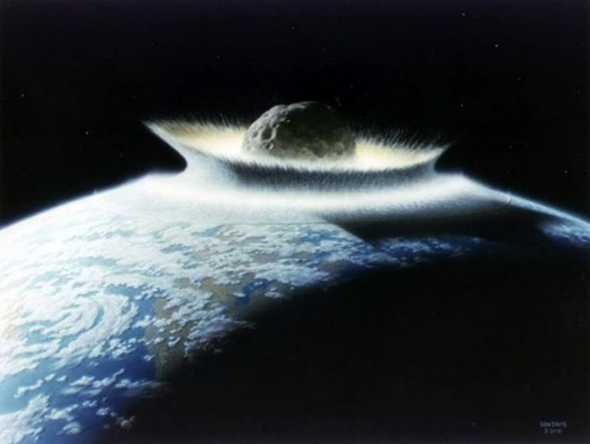What's really wrong with David Meade's doomsday prediction
Is David Meade a charlatan or just – not to put too fine a point on it – a bit of a twit?
He is the man who predicted the world would end last Saturday. Clearly we're all still here, but Meade – whose motivations must remain mysterious – has had an enormous amount of media attention. So, regrettably, has Christianity.

Russell Moore, the widely respected conservative evangelical commentator, says that 'any day could be Judgment Day' and that such speculation has 'little to do with religion and everything to do with marketing'.
Well, quite. But Moore also warns that such silliness tarnishes the Christian brand. If the first thing people think of when they see a church is a delusional end-times prophet, we have a problem.
There's no doubt that he puts his finger on something important here. But disassociating ourselves from oddballs like Meade has to be done carefully.
Nowadays, believers in doomsday prophecies are widely ridiculed. It was not always thus. Harold Camping is a recent example, but there have been plenty of others. The famous William Whiston, who translated Josephus, predicted the world would end on October 13, 1736; anxious crowds flocked to the fields of Islington and Hampstead to watch the destruction of London and the Archbishop of Canterbury was forced to issue an official denial. An unhinged soldier in the Life Guards prophesied the city's destruction on April 5, 1761. The city was practically evacuated, with thousands seeking sanctuary in villages for 20 miles around; even the ships in the Thames were crowded with refugees who thought they'd be safer afloat and wanted a good view of the collapsing Westminster Abbey.
Today, there is a solidarity between even conservative Christian like Moore and people with no faith at all. We all know this sort of thing is bunk. But there are two things that should give us pause.
The first is that in their vigorous pushback against Meade, Christian commentators are inviting the secular world to say, 'Look! These Christians are actually quite reasonable after all. They think just as we do.'
And the truth is, we don't. We believe, unless we are far out on the progressive wing, that Christianity is more than just a moral code. We believe in miracles, the greatest of which is the Resurrection. Even without getting on to the Last Things, the Bible has some pretty weird stuff within its pages, and how we understand it does vary somewhat depending on where we are on the theological spectrum. But even so, Christians see the world in a different way from the non-religious. Let's by all means push back against the stranger fringe movements – but let's do it because they're wrong, not out of embarrassment that anyone would associate us with them. We are strange. We are meant to be.
But the second is that End Times theorising is not the only thing that gives Christianity – particularly in its evangelical form – a bad rep. The point about it is that these doomsday predictions are so obviously testable and refutable. If the wider Church really had backed David Meade, it would have been in serious difficulty on September 24 because its credibility would have been shot.
The same might be said of the other end of time, the Creation. There is a whole industry devoted to the defence of young earth creationism, all in the face of the best scientific evidence there is – and it's making its mark in wider culture, even if it isn't convincing Christians. A recent poll by Newman University found only one in five religious people takes the biblical account of creation literally – but seven in 10 people actually think that's what we believe. In other words, young earth creationism doesn't represent mainstream Christian belief, but the wider population thinks it does. And so fears about Christianity's image based on doomsday prophecies turn out to be truer of creationism: we're seen as anti-scientific, head-in-the-sand fundamentalists who won't follow the evidence where it leads.
I'm happy to be strange; all Christians should be. But we should choose our strangeness wisely. It doesn't do our cause any good when we can so easily be proved wrong, whether we're talking about the end times or the beginning.
Mark Woods is the author of Does the Bible really say that? Challenging our assumptions in the light of Scripture (Lion, £8.99). Follow him on Twitter:@RevMarkWoods











